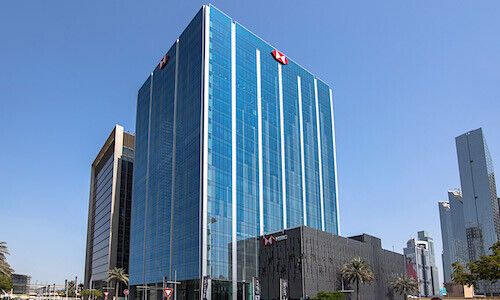HSBC Capitalizes on Diversification Out of China
Activities related to Chinese diversification away from the country have been on the rise, according to HSBC CEO Noel Quinn, who highlighted the Middle East as one of the major beneficiaries.
In the era of globalization, changes and disruptions can frequently occur, including through supply chains, be it due to government policy or simple necessity.
China, for example, is seeking to transition its economic model to be more focused on growth driven by consumption rather than investments. As a result, there is growing demand for financial support to navigate through this rebalancing period, according to HSBC CEO Noel Quinn.
«[We] has seen 70 percent growth in activity in helping Chinese clients diversify their business model outside of the landmass of China», Quinn said at the «Bloomberg New Economy Forum 2023» attended by finews.asia.
Top Target: Middle East
One of the top targets for diversification has been the Middle East, which is benefiting in part from sovereign wealth funds reshaping the region’s economy. In the last 18 months alone, $50 billion in deals have been signed with China, alongside many more with other countries.
«China’s in the Middle East, India's in the Middle East, Asia’s in the Middle East,» said Quinn. «And there's a pipeline of around $2 trillion still to be worked on. That will change supply chains.»
Rest of Asia
The Middle East is unlikely to be the lone beneficiary. Other countries in Asia, such as Vietnam, Malaysia and Bangladesh, will also gain from the flow of diversification. This is because the scale of China’s capabilities, across not only manufacturing but in other areas like logistics, is difficult for a single country to match.
«That is what China has built over decades. Many countries should be recipients, not just one,» Quinn noted.




























